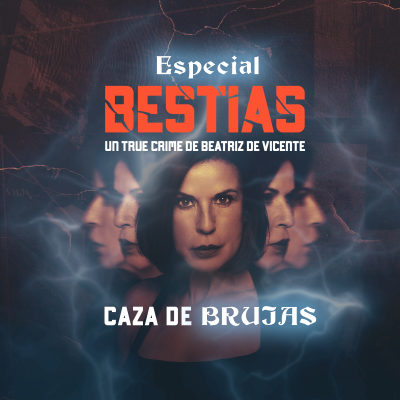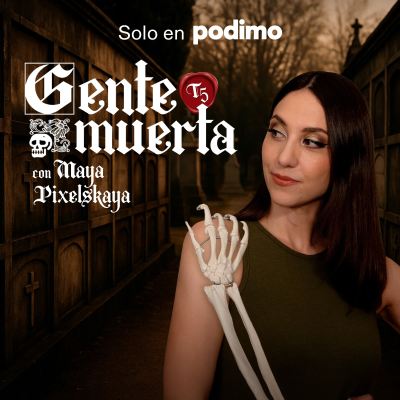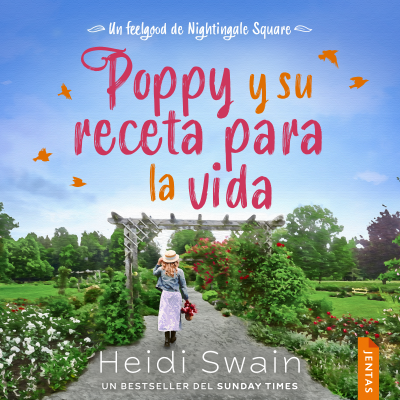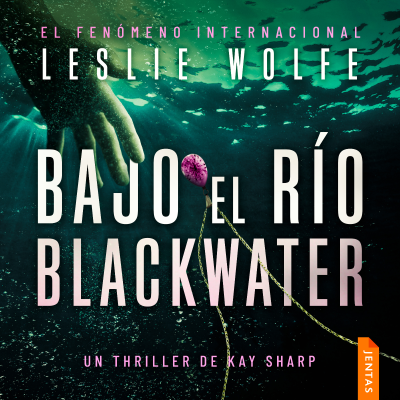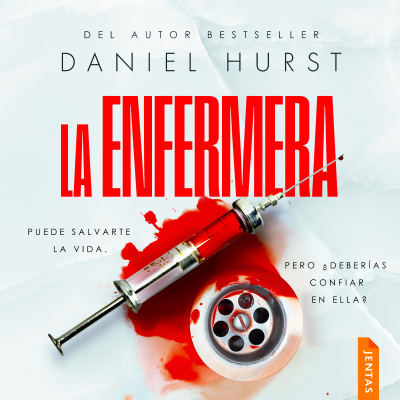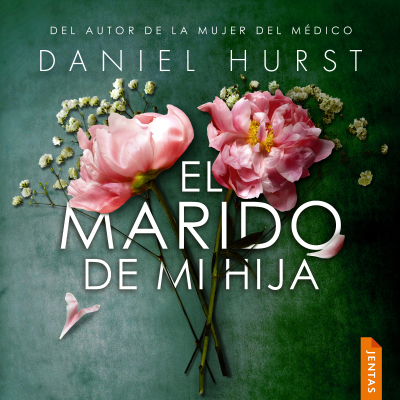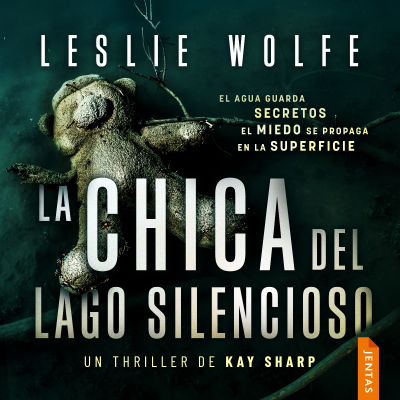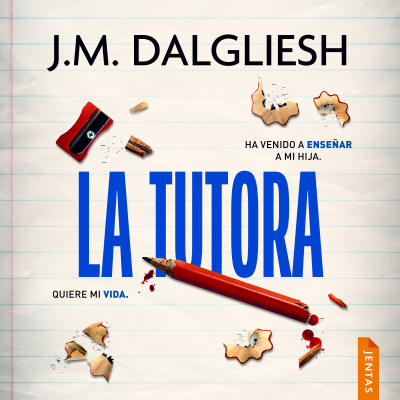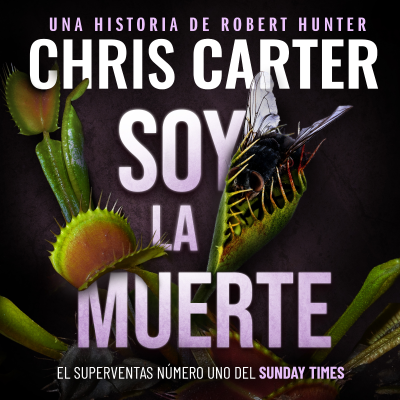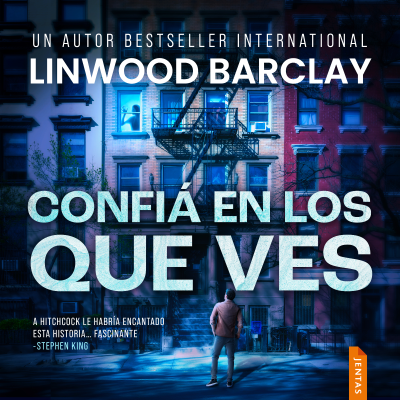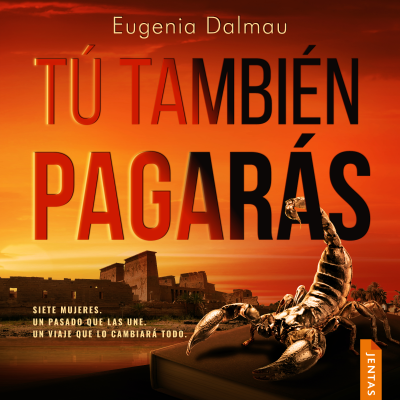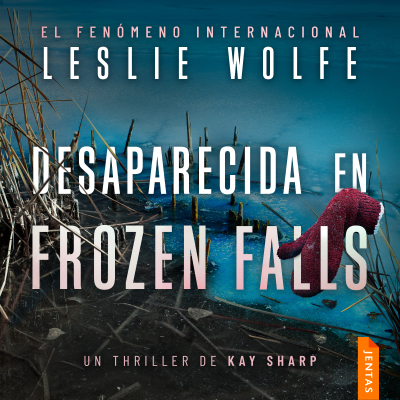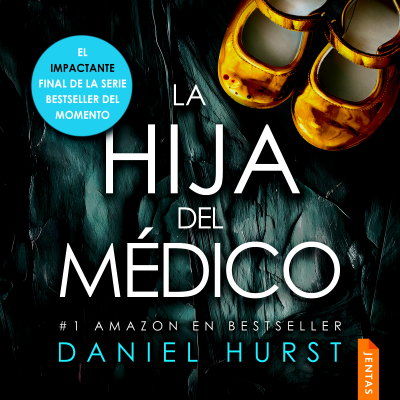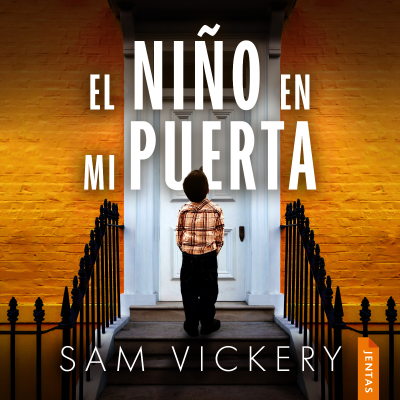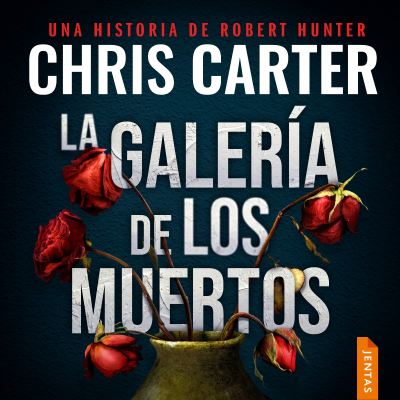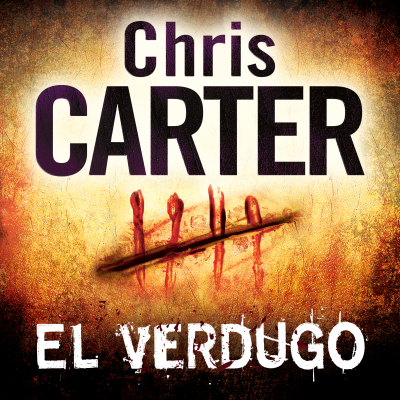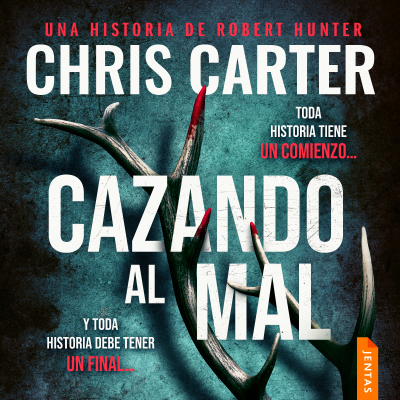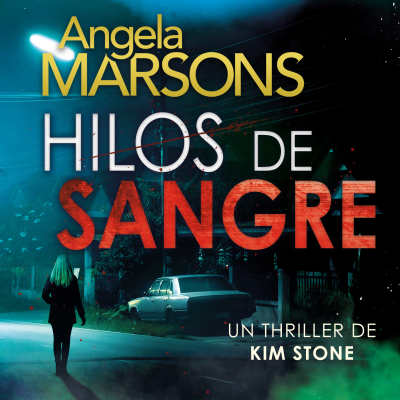
Psychedelics Today
inglés
Tecnología y ciencia
Disfruta 30 días gratis
4,99 € / mes después de la prueba.Cancela cuando quieras.
- 20 horas de audiolibros / mes
- Podcasts solo en Podimo
- Podcast gratuitos
Acerca de Psychedelics Today
Psychedelics Today is the planetary leader in psychedelic education, media, and advocacy. Covering up-to-the-minute developments and diving deep into crucial topics bridging the scientific, academic, philosophical, societal, and cultural, Psychedelics Today is leading the discussion in this rapidly evolving ecosystem.
Todos los episodios
764 episodiosPT 643 - Logan Davidson - American Ibogaine, State Strategy, and the Future of Psychedelic Policy
Logan Davidson joins the show to talk about the fast-moving world of Ibogaine in American and why state-based leadership is shaping the future of psychedelic reform. Davidson is the executive director of Texans for Greater Mental Health [https://www.t4gmh.com/], the legislative director at VETS [https://vetsolutions.org/], and a key strategist behind Texas' landmark interest in ibogaine research. He also advises for Americans for Ibogaine [https://www.americansforibogaine.org/]. His work sits at the intersection of science, policy, and lived experience, and this conversation offers a clear look into what is happening right now. Early Themes: The Rise of State Advocacy Davidson explains how he entered politics at nineteen and how his professional path merged with psychedelic policy work during the 2021 Texas legislative session. Through that first bill, he saw how science, bipartisan cooperation, and strong local leadership could advance major reform. Early discussion focuses on: * How Texas became the first state to pass a major psychedelic research bill * Why ibogaine became a central focus * How the special operations community helped shift political momentum * The personal mental health stories that shaped Davidson's commitment This section also highlights how Americans for Ibogaine [https://www.americansforibogaine.org/] entered the conversation through veterans, researchers, and state lawmakers who felt the urgency of the opioid crisis and traumatic brain injury. Core Insights: Ibogaine, Risk, and the New Research Model In the middle portion of the episode, Davidson breaks down the strategy, challenges, and promise behind ibogaine research and state-based policy innovation. Key insights include: * The unique bipartisan environment in Texas * Why stories from veterans and spouses moved lawmakers * The importance of medical screening for cardiac risk * Why research is essential for safety * How states can use funding, revenue sharing, and public health goals to shape future access What policymakers are watching right now * Effectiveness for opioid use disorder * Data from traumatic brain injury studies * Cardiac safety protocols * The risk of untreated depression and addiction * The national security implications of forcing service members to seek illegal care Davidson also explains why removing the psychedelic experience from the molecule remains controversial and why many researchers believe the full experience matters. Later Discussion and Takeaways: The Road Ahead for American Ibogaine In the final part of the conversation, Davidson speaks about the future of American Ibogaine and the broader psychedelic field. He outlines why local leadership matters, why federal funding, like what Psychedelic Medicine Coalition [https://www.psychedelicmedicinecoalition.org/] is supporting, could be the next major tipping point, and how big pharmaceutical companies may eventually enter the space through acquisitions or proprietary molecule development. Concrete takeaways include: * States should expect clear benefits: lower-cost treatments, shared revenue, and local control * Community leaders, not outsiders, often drive legislative wins * The need for long-term safety data remains * National security concerns highlight why regulated access must expand * Federal research money could radically transform the pace and scale of studies He also encourages listeners to join or build local organizations, since nearly every major win comes from people who live in the state pushing from the ground up. Frequently Asked Questions Is Ibogaine safe? Ibogaine has cardiac risks that require medical screening and careful monitoring. Researchers stress that safety improves with proper protocols and more clinical data. Why is Ibogaine important for veterans? Many special operations veterans report major benefits for traumatic brain injury, PTSD, and addiction. Their stories have driven political momentum. How are states involved in Ibogaine research? States like Texas are funding clinical trials, drug development, shaping policy, and exploring revenue and access models to support long-term public health benefits. Will Ibogaine become federally supported in America? New federal interest, including major grants and bipartisan discussions, suggests that broader support may be coming in the next few years. Closing Thoughts This episode shows why the work of Logan Davidson sits at the center of today's psychedelic resurgence. It highlights a complex but hopeful moment where science, policy, and lived experience are beginning to align. As American Ibogaine research expands, state leaders, clinicians, veterans, and advocates all have a role in shaping a safer and more effective future for these treatments.
PT 642 - Michael Sapiro PhD - Truth Medicine, Psychedelics, and Living Your Truth
In this episode, Michael Sapiro [https://www.michaelsapiro.com/] joins Kyle Buller to explore truth, healing, and psychedelic-assisted psychotherapy through the lens of his new book, Truth Medicine [https://bookshop.org/p/books/truth-medicine-healing-and-living-authentically-through-psychedelic-psychotherapy-michael-ryoshin-sapiro-psyd/40029d1902cf24d7]. A clinical psychologist, ordained Zen Buddhist monk, retreat leader, and fellow at the Institute of Noetic Sciences, he blends Buddhist psychology, trauma work, and consciousness studies. The discussion focuses on how people discover and live their truth, and why that truth becomes the core medicine in healing. Early in the Podcast with Michael Sapiro Michael [https://www.psychedelicstoday.com/2020/10/20/pt214-dr-michael-sapiro-engaged-spirituality-bringing-the-mystical-into-the-ordinary/] describes how years of clinical work and retreat facilitation shaped his understanding of healing. Real transformation happens when people speak truths they have never allowed themselves to say out loud. These truths often relate to childhood experiences, identity, and how people learned to stay safe. Key early themes include insight into: • Truth as a physical and emotional "ring" in the body • Personas formed in childhood to avoid rejection • Depression and anxiety caused by living from those personas The conversation explores how frightening it can be to challenge old roles and family narratives, yet how necessary it is for authentic healing. Core Insights from Michael Sapiro Michael [https://psychedelicstoday.com/2022/03/04/pt298/] outlines his model of preparation, psychedelic sessions, and integration, especially in ketamine-assisted psychotherapy. Preparation often includes discovering what he calls the "heart of the hurt" and building trust for the internal process. Core insights include: • Tracing patterns back to their origins in early experience • Using guided imagery, breathwork, and somatic awareness to practice surrender • Understanding healing as applying love to wounded parts • Understanding growth as becoming who you would be without old limits Additional points: • Medicine sessions create real practice in letting go • Defenses should be engaged with, not fought • Sensations in the body offer essential guidance Later Discussion and Takeaways with Michael Sapiro Michael compares one-on-one psychotherapy with retreat work. In group settings he holds space and supports safety, while in individual sessions he uses a blend of silence and active therapeutic guidance. He also shares personal truth work, including embracing his own "bigness," understanding ethics as part of spirituality, and learning to endure anxiety without falling into shame. Listeners gain practical guidance for nurturing wounded parts, developing the ability to endure challenging states, and allowing their strengths to emerge. Frequently Asked Questions Who is Michael Sapiro? Michael Sapiro is a clinical psychologist, ordained Zen Buddhist monk, psychedelic psychotherapist, retreat leader, and research fellow at the Institute of Noetic Sciences [https://noetic.org/]. What is the main idea of Truth Medicine by Michael Sapiro? Truth Medicine [https://bookshop.org/p/books/truth-medicine-healing-and-living-authentically-through-psychedelic-psychotherapy-michael-ryoshin-sapiro-psyd/40029d1902cf24d7] teaches that discovering and living one's personal truth is the core of healing, with psychedelics serving as a tool that helps reveal and embody that truth. How does Michael Sapiro use ketamine in therapy? He uses ketamine within a structured model involving preparation, supportive dosing sessions, and integration focused on compassion, endurance, and meaningful change. Does he only work in group settings? No. He leads retreats, but much of his work is individual psychedelic psychotherapy focused on trauma, personal truth, and growth. What can clinicians learn from his approach? Clinicians can learn how to balance guided intervention with open space, work directly with defenses, and support healing as both love and action. Closing Thoughts This conversation with Michael Sapiro [https://www.michaelsapiro.com/] offers a grounded, practical view of how truth, compassion, and psychedelic-assisted psychotherapy can support real change in the current psychedelic resurgence. By blending body awareness, ethical clarity, and personal growth, this episode provides useful guidance for therapists, guides, and seekers who want to bring more truth medicine into their lives and communities. https://www.michaelsapiro.com [https://www.michaelsapiro.com]
PT 641 - Joe Moore & Kyle Buller - Holotropic Breathwork, Somatics, and Foundations for Psychedelic Work
Holotropic Breathwork [https://en.wikipedia.org/wiki/Stanislav_Grof] sits at the center of this wide ranging conversation between Psychedelics Today co-founders Joe Moore and Kyle Buller. Drawing from decades of personal practice and assorted types of breathwork facilitation, they explore how breathwork methods from the Grof lineage including Dreamshadow Breathwork [http://dreamshadow.com/] can prepare people for psychedelic work, support difficult journeys, and deepen integration over time. Kyle shares how his near death experience, somatic training, and breathwork facilitation shaped this new course on breathwork foundations, while Joe reflects on how reading Dr Stanislav Grof and years of experience in Holotropic Breathwork changed how he approaches psychedelics. Early Themes: Roots, Lineages, and First Encounters The episode opens with how each of them first found breathwork. Joe discovered Grof's writing in college, then traveled to Dreamshadow workshops long before he worked seriously with psychedelics. Kyle came to Holotropic [https://psychedelicstoday.com/2024/01/16/pt478-christine-calvert-lcdc/] style breathwork while studying transpersonal psychology at Burlington College, arriving as a skeptic who assumed people were exaggerating until his first session opened into a full psychedelic level process. They trace the roots of breathwork in modern psychology back to Wilhelm Reich, character armor, and early somatic approaches, then follow that thread into Grof's work and later branches. Joe and Kyle map out the different schools that emerged, including Grof Transpersonal Training, Grof Legacy Training, and Dreamshadow, and explain why the term "breathwork" has become a huge umbrella that covers everything from Wim Hof to short online sessions that are not actually Holotropic Breathwork. Core Insights: Breath, Nervous System, and Working the Edges In the middle of the episode they move into what this new foundations course actually covers and why it matters now. Rather than promising quick fixes, Kyle frames breath as a flexible tool for: * Preparation before psychedelic sessions * Navigation during intense or destabilizing moments * Integration and nervous system support afterward They discuss window of tolerance, fight flight freeze responses, and how fast, deep breathing can open powerful experiences but also risk overwhelm if there is no somatic literacy. Kyle shares a vivid story from a ketamine training where his near death trauma was reactivated and how simple breath awareness, slow belly breathing, and body based skills kept him from panicking or fleeing. Throughout, they return to a key point: Holotropic Breathwork and related practices can restore agency. The breather chooses when to intensify, when to slow down, and how far to go, which can be deeply reparative for people whose trauma involved a loss of control. Later Discussion and Takeaways: Holotropic Breathwork as Foundation, Not Shortcut Later in the conversation, Joe and Kyle caution against "keeping up with the Joneses" in psychedelic culture. They talk about people chasing ever bigger doses, accruing trauma, and then needing years of therapy to sort it out. Breathwork, including Holotropic Breathwork in a well held group setting, is offered as a slower, more grounded way to explore non ordinary states while building skills that transfer into medicine work. They outline the core components of Grof lineage breathwork: intensified breathing, evocative music, focused body support, expressive art, and group sharing in a safe container. Joe highlights how group process, mandala drawing, and simply being witnessed can be as healing as the inner journey itself. They also flag practical next steps: Kyle's self paced breathwork foundations course [https://www.psychedeliceducationcenter.com/foundations-of-breathwork] at the Psychedelic Education Center [https://psychedeliceducationcenter.com/], upcoming live online sessions, and in person weekend workshops in places like Breckenridge. Frequently Asked Questions What is Holotropic Breathwork? Holotropic Breathwork is a structured group process developed by Stan and Christina Grof that uses accelerated breathing, evocative music, supportive bodywork, art, and integration sharing to access non ordinary states of consciousness without substances. Is Holotropic Breathwork as intense as psychedelics? For some people, yes. Joe and Kyle both describe Holotropic Breathwork sessions that matched the depth of powerful LSD or ayahuasca journeys, while also noting that some sessions are quiet, restful, and focused on simple nervous system regulation. Can I do Holotropic Breathwork alone at home? They strongly suggest caution. Gentle breath practices can be explored solo, but Holotropic Breathwork as taught in the Grof lineages is designed for a trained facilitation team and a group container to reduce risk and support intense emotional or somatic processes. How does Holotropic Breathwork help with psychedelic preparation and integration? Breathwork helps people learn their own nervous system, practice staying with difficult material, and build trust in inner process. These skills often translate into more resilience, flexibility, and agency before, during, and after psychedelic sessions. Is Holotropic Breathwork backed by research? Research on breathwork is growing, especially around heart rate variability, stress, and subjective mystical type experiences. Joe and Kyle emphasize that early studies suggest overlaps with psychedelic states, but they avoid framing Holotropic Breathwork as a cure and instead present it as a powerful tool within a broader healing path. In a culture that often treats psychedelics like quick fixes, this episode makes the case for slow foundations, embodied practice, and honest respect for the risks. By placing Holotropic Breathwork and the other Grof lineage breathwork practices inside a larger conversation about trauma, agency, and community, Joe and Kyle offer a grounded path for anyone who wants to explore non ordinary states in a safer, more skillful way. Learn more about breathwork in the Foundations class here [https://www.psychedeliceducationcenter.com/foundations-of-breathwork].
PT 640 - Alexander Beiner - Psychedelics, Culture, and the Games We Play
Alexander Beiner [https://psychedelicstoday.com/2023/10/31/pt456-alexander-beiner/] joins Psychedelics Today to explore how psychedelics, culture, and power shape each other. A writer, facilitator, and co founder of the conference Breaking Convention [https://breakingconvention.co.uk/] and the media platform KAINOS [https://beiner.substack.com/], he has spent years thinking about how psychedelic experiences ripple into politics, economics, conflict, and community. In this episode, he and Joe trace the path from early internet forums to today's psychedelic renaissance, and ask what it would mean to bring a truly psychedelic perspective into our institutions. Beiner is less interested in psychedelics as a niche medical tool and more interested in how they can help us see through destructive cultural "games," reconnect to our bodies, and relate across deep divides. Early themes with Alexander Beiner The conversation starts with Beiner's origin story. He describes formative psychedelic experiences as a teenager, and how early access to thinkers like Terence McKenna, Timothy Leary, and the Shulgins led him onto the Grow Report forum and its associated podcasts. From there he launched his own visionary art podcast and eventually co founded Rebel Wisdom, where he focused more broadly on culture, systems, and meaning rather than only on psychedelics. He explains that most of his writing has not been about psychedelic substances, but about a "psychedelic approach" to reality. That means paying attention to complexity, paradox, and relationship, and asking what a psychedelic form of education, politics, or media might look like. He also touches on his documentary "Leviathan," which looks at breakdowns of trust, disembodiment, and the social forces that pull us away from what is real and relational. Core insights from this conversation In the middle of the episode, the discussion moves into concrete tensions in the current psychedelic resurgence. Topics include: * How medicalization can both help and constrain access * Cognitive liberty [https://psychedelicstoday.com/2017/07/03/cognitive-liberty/] and the right to alter one's own consciousness * Psychedelic capitalism and the "Moloch" problem of destructive competitive games * The risks and potential of psychedelic religions and new spiritual communities Beiner highlights work on ayahuasca circles for Israelis and Palestinians, noting how "we are all one" language can sometimes block necessary truth telling about power and harm. He returns often to embodiment as a key corrective. When people slow down, feel their bodies, and notice what is actually happening in their nervous systems, they can hold disagreement without dehumanizing each other. He also points to emerging work on psychedelics for creativity and problem solving, including stories where psychedelic insights contributed to breakthroughs in science and complex systems thinking. For him, this is one of the most exciting frontiers, because it shifts the story from "fixing a deficit" to "creating something new." Later discussion and takeaways with Alexander Beiner Later in the episode, Alexander Beiner and Joe talk about cult dynamics [https://psychedelicstoday.com/2019/04/30/matthew-remski-cultic-mechanisms-and-after-effects-of-high-demand-group-life/], religious freedom, and the need for better checks and balances in emerging psychedelic communities. Beiner stresses that humans are naturally drawn into strong groups and narratives, so the key is not to eliminate "cults" but to spot harmful patterns early and build better accountability. They explore how double binds and mixed messages can create mental distress, and how psychedelics can sometimes resolve these binds by adding new context and perspectives. From there, the conversation turns to third spaces, communitas, and the urgent need for more embodied, in person culture beyond screens, work, and home. Practical takeaways include: * Work with psychedelics in ways that reconnect you to your body, not just your ideas * Treat medicalization as one path among many, not the only legitimate route * Pay attention to group dynamics, power, and accountability in any psychedelic setting * Look for ways to bring "psychedelic virtues" like flexibility, curiosity, and compassion into your workplace, family, and community Frequently Asked Questions Who is Alexander Beiner? Alexander Beiner is a writer, facilitator, and co founder of the psychedelic conference Breaking Convention and the media platform Kinos. His work focuses on culture, systems, and how psychedelic perspectives can reshape society. What is Alexander Beiner's book about? His recent book (discussed in this episode) looks at how psychedelics interact with politics, capitalism, and culture, and asks whether they can help us navigate multiple crises without getting captured by the same destructive games. How does Alexander Beiner view psychedelic medicalization? He sees medicalization as useful but limited. He supports access for people who need it, but worries that a purely medical frame reinforces class divides and hands too much power to psychiatry, instead of centering cognitive liberty and community based use. What is Leviathan in Alexander Beiner's work? "Leviathan" is his documentary on the breakdown of trust, disembodiment, and large scale systems that pull us away from what is real and relational. It connects mythic images, embodiment, and modern crises of meaning. What is Kinos and how does it relate to Alexander Beiner? KAINOS is Beiner's Substack based media platform, focused on surfacing novel perspectives and stories about culture, psychedelics, and the future. It extends many of the themes explored in this episode. This episode places Alexander Beiner within the wider psychedelic resurgence as a voice linking inner work to outer systems. For clinicians, researchers, and community members, it offers a rich invitation to think beyond individual healing and ask how psychedelic perspectives might help us transform the cultural games we are playing. KAINOS [https://beiner.substack.com/] The Bigger Picture [https://www.penguinrandomhouse.com/books/724758/the-bigger-picture-by-alexander-beiner/] Breaking Convention [https://breakingconvention.co.uk/]
PT 639 - Evelyn Eddy Shoop PMHNP-BC: Lived Experience, Qualitative Data, and the Future of Psychedelic Care
Overview Evelyn Eddy Shoop PMHNP-BC joins Psychedelics Today to share her journey from Division I athlete to psychiatric mental health nurse practitioner and psilocybin research participant. In this conversation, she explains how sports injuries, OCD, and intensive treatment led her into psychiatry and eventually into a psilocybin clinical trial at Yale. Her story weaves together lived experience, clinical training, and a call for more humane systems of care and better qualitative data in psychedelic science. Early Themes: Injury, OCD, and Choosing Psychiatry Early in the episode, Evelyn Eddy Shoop PMHNP-BC describes how multiple season ending injuries in college and serious mental health stressors in her family pushed her to rethink her life path. Originally pre vet, she stepped away from veterinary medicine after realizing she could not tolerate that environment. During a semester off for surgery and mental health, she completed intensive outpatient treatment and family therapy. That time showed her how powerful psychological work could be. It also reawakened a long standing curiosity about the brain, consciousness, and human experience. This led her to switch her major to psychology and later pursue psychiatric mental health nurse practitioner training at the University of Pennsylvania. At Penn, she felt supported academically and personally. Her interest in psychedelics grew as she realized that standard OCD treatments and high dose SSRIs were not giving her the level of functioning or happiness she knew was possible. Core Insights: Psilocybin Trials, Qualitative Data, and Clinical Skepticism In the middle of the episode, Eddy shares the story of finding a psilocybin trial on ClinicalTrials.gov just as she was about to start ketamine therapy. She received placebo first, then open label psilocybin, and describes the dosing day as one of the hardest days of her life, with benefits that emerged slowly over months through integration. She uses her experience to highlight why qualitative data matters. Numbers alone cannot capture the depth of a psychedelic journey or the slow unfolding of meaning over time. She argues that subjective stories, even difficult ones, are essential for clinicians, researchers, and policymakers. Key themes include: * The central role of integration support in turning a crisis level session into lasting growth * How trial environments on inpatient psychiatric units can feel like prison instead of healing spaces * The limits of double blind placebo trials when participants become desperate for active treatment * The need for more nuanced language around psychosis and psychedelic harms Eddy also addresses skepticism in psychiatry. Many providers fear substance induced psychosis and feel uneasy with medicines whose mechanisms are not fully understood. She suggests that more lived experience stories and careful education can help bridge that gap. Later Discussion and Takeaways In the later part of the episode, Eddy and Joe discuss harm reduction, ketamine risks, and how poorly designed systems can create harm even when the medicine itself is helpful. Eddy describes being treated as "just another psych patient" once the research team left for the day, including being denied basic comforts like headache relief after an emotionally intense session. She calls for: * More humane hospital and research environments * Required psychedelic education in psychiatric training * Honest, nonjudgmental conversations about substance use with patients * Stronger public education for students and festival communities Eddy also invites listeners in Wilmington, Delaware and nearby regions to connect if they need a psychiatric mental health nurse practitioner for psychedelic related research. She hopes to bring her lived experience and clinical skills into the emerging field as psilocybin and other treatments move toward approval. Frequently Asked Questions Who is Evelyn Eddy Shoop PMHNP-BC? She is a psychiatric mental health nurse practitioner trained at the University of Pennsylvania, a former Division I athlete, and a psilocybin trial participant who now advocates for more humane and data informed psychedelic care. What did Eddy learn from her psilocybin clinical trial experience? She learned that the hardest sessions can lead to deep change when integration support is strong and when there is time to unpack insights, rather than rushing to rate symptoms on a scale. Why does she care so much about qualitative data in psychedelic research? Eddy believes that numbers cannot capture the full human impact of psychedelic therapy. Stories show how people actually live with their disorders and integrate change, which is vital for ethical practice and policy. How does she view psychedelic harms and psychosis risk? She acknowledges real risks, especially for people with certain histories, but also notes that some psychotic experiences are not distressing. She calls for more precise language, better containers, and honest harm reduction education. What role does a psychiatric nurse practitioner like Evelyn play in psychedelic care? Practitioners like Evelyn can assess risk, prescribe within legal frameworks, provide preparation and integration, and help bridge the gap between traditional psychiatry and emerging psychedelic therapies. Psychedelic care is evolving fast, and this episode shows why voices like Evelyn Eddy Shoop PMHNP-BC are essential in the current psychedelic resurgence. Her blend of lived experience, clinical training, and critical thinking points toward a future where data and story, safety and possibility, can finally grow together.
Elige tu suscripción
Premium
20 horas de audiolibros
Podcasts solo en Podimo
Podcast gratuitos
Cancela cuando quieras
Disfruta 30 días gratis
Después 4,99 € / month
Premium Plus
100 horas de audiolibros
Podcasts solo en Podimo
Podcast gratuitos
Cancela cuando quieras
Disfruta 30 días gratis
Después 9,99 € / month
Disfruta 30 días gratis. 4,99 € / mes después de la prueba. Cancela cuando quieras.

